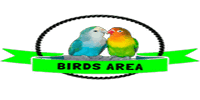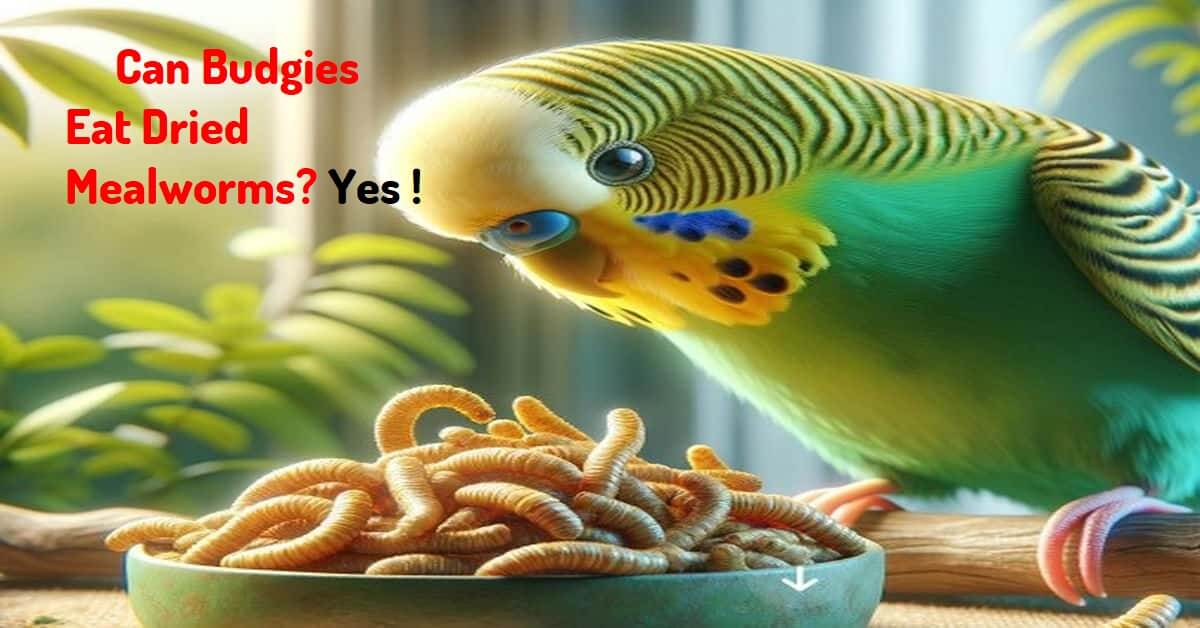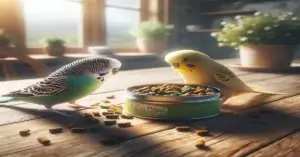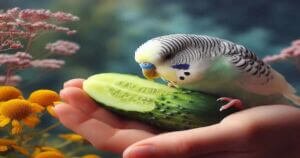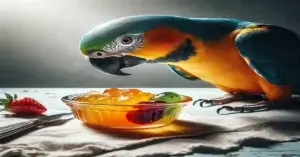Can Budgies Eat Dried Mealworms Safely? Surprising Facts
Budgies, our feathered friends known for their bright feathers and happy tweets, need a good diet to stay healthy. They usually munch on seeds, fruits, and veggies. But what about can budgies eat dried mealworms?
The answer is yes. Dried mealworms are a great treat for them, packed with protein. This protein is super important for their muscles, feathers, and overall growth. So, while their main meals are seeds and pellets, a few dried mealworms now and then are a tasty and healthy extra.
Moreover, this means they not only get variety but also all the good stuff they need from their food. Let’s dive into why these wiggly snacks are a good choice for your feathered friend.
Can Budgies Eat Dried Mealworms?
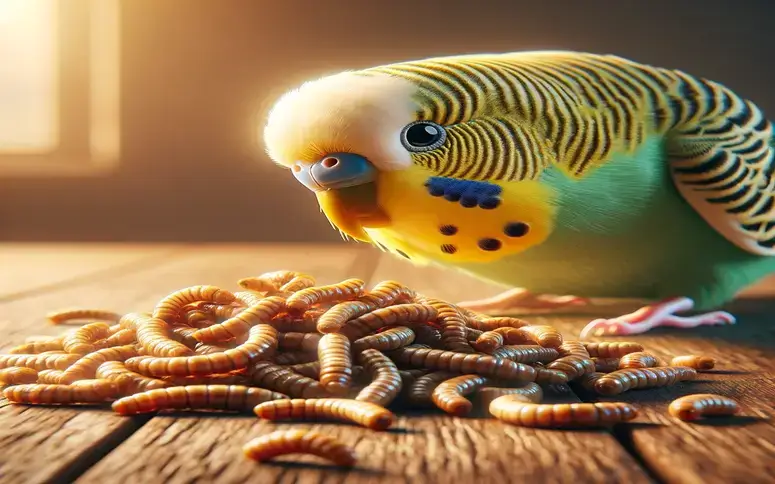
As an owner of budgies, I’ve often explored various dietary options to ensure my feathered friends are healthy and happy. One question I’ve looked into is whether budgies can eat dried mealworms. After researching and consulting with avian experts, I’ve learned that budgies can indeed have dried mealworms, but there are a few important points to consider.
Firstly, dried mealworms should only be offered as an occasional treat. This is because mealworms are high in fat and protein, and can lead to health issues like obesity if overfed. I usually give my budgies a small pinch of dried mealworms, no more than once a week. This ensures they get the benefits without the risks.
The benefits of feeding budgies dried mealworms are notable. Mealworms are a good source of protein, which is essential for the health of their feathers and overall growth. They also provide a nice variety to the budgies’ diet, which can be stimulating for them.
When I feed my budgies dried mealworms, I make sure to crush them into smaller pieces. This makes it easier for the budgies to eat and digest. I also mix the mealworms with their regular seed mix or offer them as a separate treat during playtime or training sessions.
Ultimately, while dried mealworms can be a nutritious treat for budgies, they should be given in moderation. As with any dietary change or introduction of new treats, it’s important to observe your budgies for any adverse reactions. By doing so, you can ensure your budgies enjoy their treats safely and stay in good health.
You can also read- Can Budgies Eat Dried Herbs Safely?
Are Dried Mealworms Safe For Birds? Benefits Of Dried Mealworms
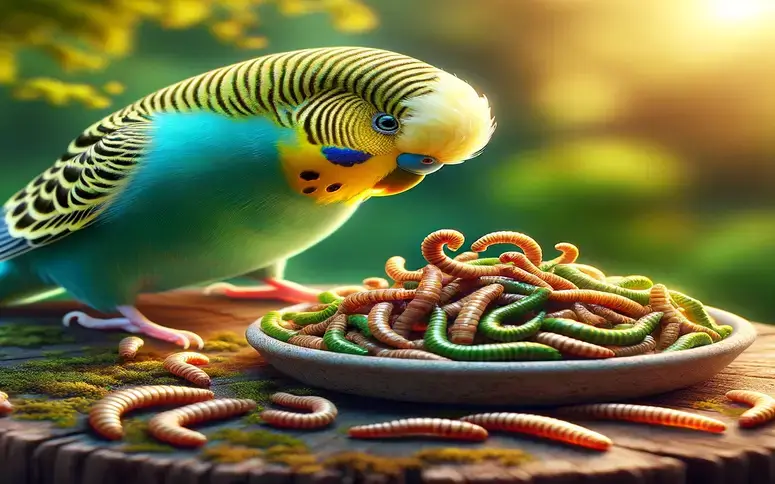
Dried mealworms are indeed safe for many birds including budgies and are often a popular treat among bird enthusiasts. These treats offer several benefits, making them a valuable addition to the diet of various bird species.
Here’s a breakdown of the benefits of dried mealworms for birds:
- High Protein Content: Dried mealworms are an excellent source of protein, which is crucial for birds, especially during breeding and molting seasons. Protein aids in feather growth and overall health.
- Easy to Store and Handle: Unlike live mealworms, dried mealworms are much easier to store and handle. They have a long shelf life and don’t require the special care that live mealworms do.
- Attracts a Variety of Birds: Offering dried mealworms can attract a diverse range of birds to your yard, including bluebirds, robins, woodpeckers, and chickadees. This diversity can make bird-watching more enjoyable.
- Good for Breeding Birds: During the breeding season, birds need extra nutrition to lay eggs and raise their young. Dried mealworms provide this additional nutritional boost.
- Safe and Non-Perishable: Being non-perishable, dried mealworms don’t carry the risk of bacteria and parasites that can be associated with raw meat products.
- Enhances Bird Diets: Especially in urban settings where natural food sources may be limited, dried mealworms can supplement a bird’s diet, providing essential nutrients.
7. Useful for Training and Taming: Dried mealworms can be used as a reward in training birds, especially in taming wild birds or engaging with pet birds.
While dried mealworms offer these benefits, it’s important to remember they should be given as a supplement to a bird’s diet, not as the sole food source.
Birds require a varied diet to meet all their nutritional needs. Additionally, for domestic birds like pet parakeets or budgies, it’s essential to crush the mealworms into smaller pieces to prevent choking hazards.
Risks Of Dried Mealworms For Feeding Budiges
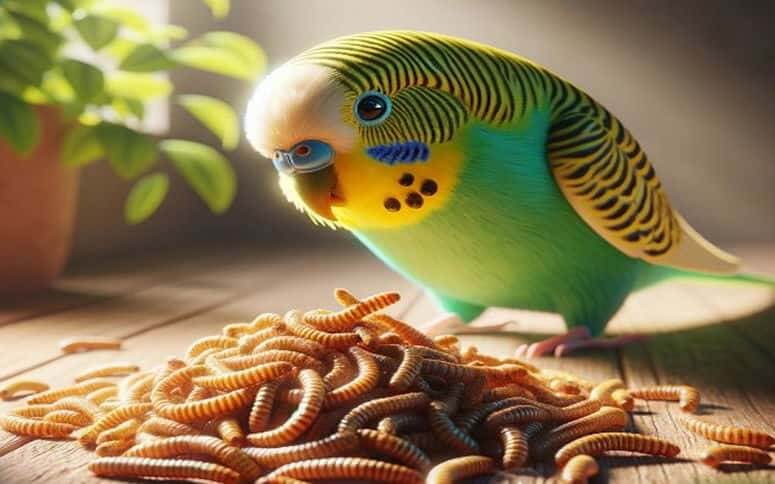
Feeding dried mealworms to budgies does come with certain risks that you should be aware of. While they can be a nutritious treat, it’s important to understand and mitigate these risks:
| Risk Factor | Description |
|---|---|
| High Fat Content | Mealworms are rich in fats, leading to obesity if fed excessively. |
| Nutritional Imbalance | Overreliance on mealworms can cause a lack of essential nutrients found in a varied diet of seeds, fruits, and vegetables. |
| Choking Hazard | The size and texture of dried mealworms can pose a choking risk. It’s safer to crush them into smaller pieces for budgies. |
| Digestive Issues | Mealworms can sometimes upset a budgie’s delicate digestive system, especially if they’re not a regular part of their diet. |
| Lack of Hydration | Dried mealworms don’t contain water, unlike fresh fruits and vegetables, and hence don’t contribute to hydration. |
| Pesticide Contamination | There’s a potential risk of contamination with pesticides, especially if the mealworms are not from a trusted source. |
| Allergic Reactions | While rare, some budgies might be allergic to mealworms. Watch for any signs of discomfort or allergic reactions. |
It’s important to remember that while dried mealworms can be a treat for budgies, they should only be a small part of their diet. Ensuring a balanced diet and careful monitoring are key to keeping your budgie healthy and happy.
Alternatives To Dried Mealworms For Feeding Budgies
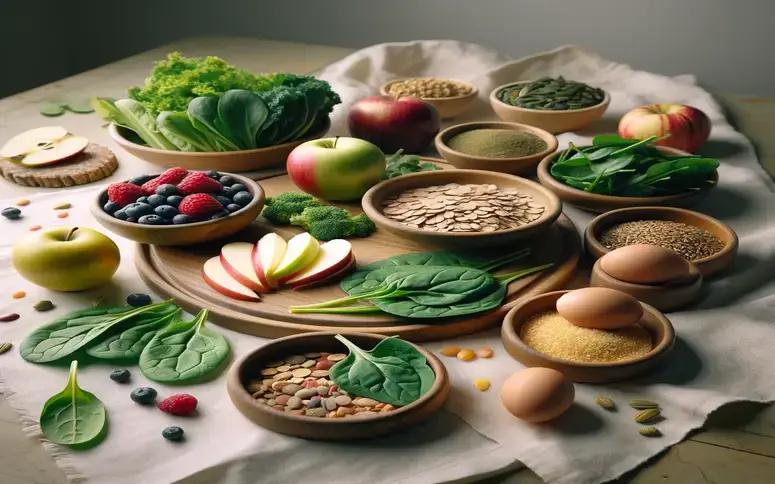
When considering options for feeding your budgies, dried mealworms can be a popular choice. However, there are alternatives to dried mealworms that can also provide essential nutrients and variety in their diet.
Safe Options
Budgies can safely consume a variety of foods in addition to dried mealworms.
Safe options include:
- Fresh fruits such as apples and berries
- Leafy greens like arugula, spinach, and kale
- Grains and seeds
- Small amounts of cooked eggs for added protein
Supplements
Incorporating supplements into your budgie’s diet can provide additional nutrients.
Some popular supplements include:
- Calcium supplements for bone health
- Vitamin drops to ensure a balanced diet
- Mineral blocks for beak and nail maintenance
By offering safe food options and supplements, you can provide your budgies with a well-rounded and nutritious diet, whether or not dried mealworms are included.
Frequently Asked Questions For Can Budgies Eat Dried Mealworms
How Do You Prepare Dried Mealworms For Birds?
To prepare dried mealworms for birds, simply mix them with bird seed or nuts, or serve them alone in a bird feeder. Dried mealworms are safe and a healthy source of protein, enriched oil, and nutritional value for birds like budgies.
How Often Should I Give Dried Mealworms To My Budgie?
Dried mealworms should be given to budgies as a treat only, and not as a regular part of their diet. Offering dried mealworms once or twice a week is sufficient to provide nutritional benefits without disrupting their balanced feeding routine.
Can Dried Mealworms Be A Substitute For Live Ones?
No, dried mealworms should not be considered as a complete substitute for live mealworms. Live mealworms offer additional benefits such as increased mental stimulation and are closer to the budgies’ natural diet. While dried mealworms can be offered occasionally, they should not replace the live ones completely in your budgies’ diet.
Sum Up
Budgies can indeed eat dried mealworms as a safe and nutritious addition to their diet. Mealworms provide a balanced blend of protein, fat, and fiber, promoting the health and vitality of your feathered friend. These dried treats appeal to a bird’s natural instinct and are a natural part of their diet.
You can mix them into your budgie’s seed mix or serve them alone in a feeder. Remember to offer them as a supplement rather than a primary source of protein. Enjoy watching your budgie indulge in this tasty and beneficial snack.
Lastly, you can watch the video below to learn more about mealworms for birds.
Hello Dear, I'm Poli Kolymnia, owner of many birds (including budgies).
With a deep passion for these feathered companions, I'm here to share my expertise and extensive knowledge on birds care.
My articles cover essential topics like diet, housing, care, and health, providing practical tips to help you create a happy and thriving environment for your birds.
